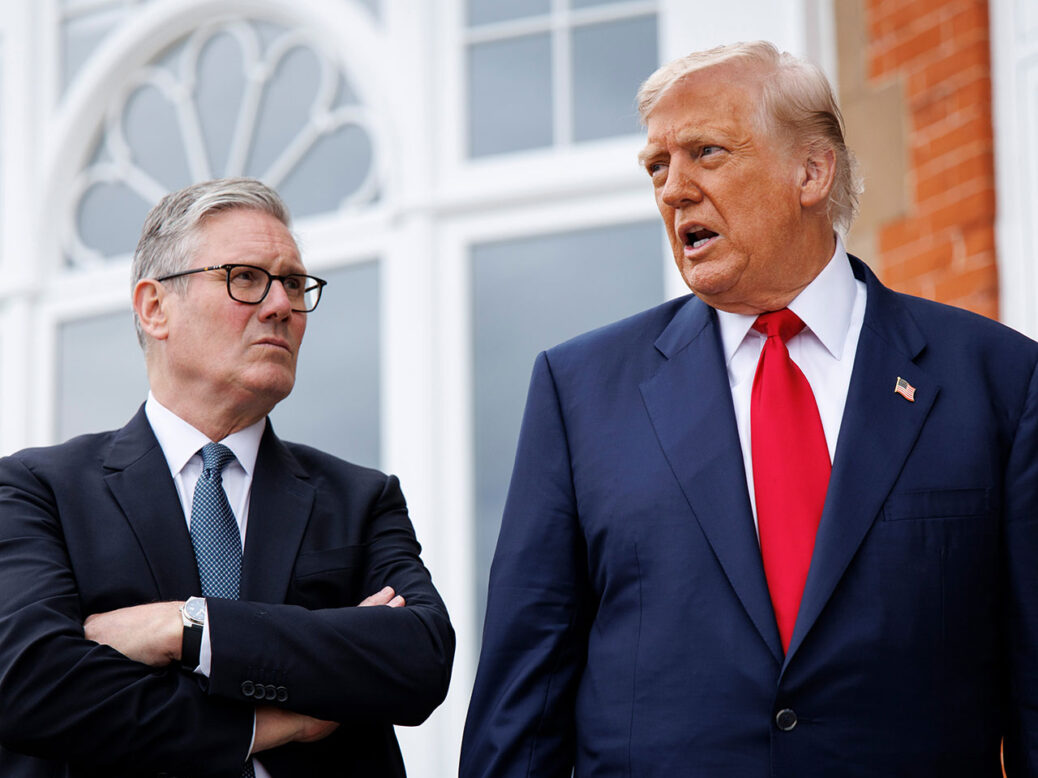The persistent inclination of British prime ministers to place undue faith in the so-called “special relationship” with the United States has frequently led to profound political and diplomatic disappointments. Despite historical precedents of past leaders experiencing significant setbacks from such reliance, successive prime ministers have continued to seek close alignment with Washington, often at their own peril.
This enduring fascination with the Anglo-American bond is perhaps best illuminated by the late Foreign Secretary Robin Cook’s incisive “bridgehead” metaphor. Cook critiqued the notion of Britain serving as America’s conduit to Europe, suggesting it presented a convenient yet ultimately passive role, perfectly suited for New Labour’s aversion to difficult choices. This perspective highlights a fundamental issue within British politics regarding its global positioning.
Tony Blair’s approach to the Iraq War exemplifies this flawed dynamic. When confronted with the stark choice between European allies and the United States, Blair opted for the perceived comfort zone of alignment with President George Bush. Despite initial support from conservative media, the war’s calamitous outcomes led to widespread disillusionment and a significant decline in Blair’s political standing, demonstrating how quickly the “special relationship” can turn into a political liability.
The economic repercussions of this steadfast alignment are not new. Following World War II, Prime Minister Clement Attlee secured a vital, albeit punitive, loan from the United States to rebuild a war-torn Britain. The harsh terms of this agreement significantly burdened the British economy, contributing to the Labour government’s struggles and illustrating how US relations could impose substantial domestic costs, impacting broader UK foreign policy.
Decades later, Anthony Eden’s premiership met its demise largely due to misplaced assumptions about US support during the Suez Crisis. Eden’s aggressive stance against Egypt’s seizure of the Suez Canal was predicated on an expectation of Washington’s backing or at least neutrality. President Dwight Eisenhower’s unequivocal opposition, coupled with US economic threats, forced Eden to retreat, revealing the limits of the “special relationship” and leading to his swift political downfall.
However, not all British prime ministers have succumbed to this persistent allure. Leaders like Harold Macmillan, who witnessed the Suez debacle firsthand, and Harold Wilson demonstrated a more independent approach, recognizing that the US could not always be relied upon. Wilson notably refused military support in Vietnam, enduring Washington’s fury but asserting Britain’s distinct international relations posture. Edward Heath further cemented this shift by prioritizing Britain’s entry into the Common Market over the traditional Anglo-American ties, marking a significant reorientation of UK foreign policy.
There are, undoubtedly, compelling reasons for fostering close ties with the US, particularly regarding intelligence sharing and leveraging America’s unparalleled economic and diplomatic might. When collaboration with presidents is genuinely productive, it serves mutual interests. Yet, the question remains: why do so many prime ministers, seemingly blinded by the glamour of White House visits, repeatedly fall victim to an uncritical hunger for unity with the US?
A significant part of the answer lies in Britain’s long-standing ambivalence towards Europe and the immediate gratification derived from appearing “shoulder to shoulder” with a US president, particularly for Labour leaders seeking approval from right-wing British newspapers. This pursuit of short-term political gains often overshadows the long-term strategic pitfalls, leading prime ministers knowingly into a form of political incarceration, trapped by the very “special relationship” they so eagerly embrace.






Leave a Reply